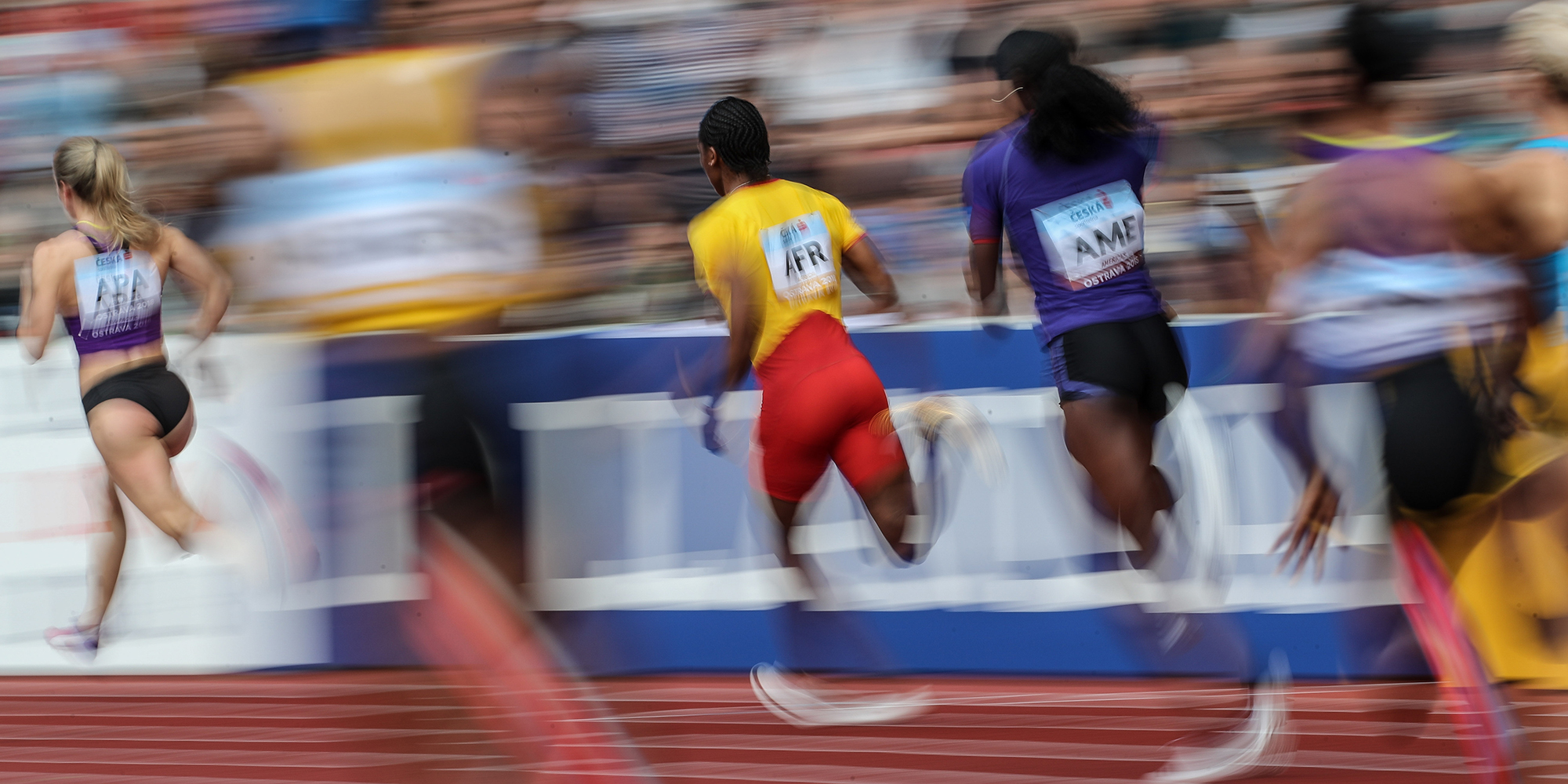OLYMPIC HOPES
Still a long road to run for Caster Semenya despite winning discrimination ruling

Caster Semenya has taken a small step towards competing at Paris 2024, but faces a long battle against World Athletics regulations.
Double Olympic 800 metres champion Caster Semenya has taken a potentially small step towards competing at Paris 2024 but there is a long way to go in her battle against World Athletics regulations that have kept her largely idle for four years.
South African Semenya, an athlete with differences in sexual development (DSDs), has been involved in a legal battle over regulations that prohibit her from running unless she medically lowers her natural testosterone levels.
The 32-year-old middle-distance runner first took her fight to the Court of Arbitration for Sport (CAS), sport’s highest court, and later the Swiss Federal Tribunal (SFT).
Semenya lost both cases, although when CAS ruled against her four years ago it accepted that it meant she was being discriminated against but its judges ruled 2-1 that “such discrimination is a necessary, reasonable and proportionate means of achieving World Athletics’ aim of preserving the integrity of female athletics in the Restricted Events”.
However, Tuesday’s judgement by the European Court of Human Rights (ECHR), delivered in her favour by a slender margin of four to three, states that she was in fact discriminated against by the SFT, who did not consider respect for her private life and the right to an effective remedy.
It does not set aside the World Athletics regulations and will likely be challenged by the Swiss Government during a three-month period following the judgement when it is non-binding and open to review, which could be a long process.
In fact, Semenya’s path back to competition remains arguably as tough as it was before Tuesday’s judgement — a moral victory, but not one that moves her significantly closer to the Olympics.

Caster Semenya (centre) of South Africa of Team Africa in action during the Women’s 400m at the IAAF Continental Cup in Ostrava, Czech Republic on 8 September, 2018. (Photo: EPA-EFE / Martin Divisek)
Standing by rules
World Athletics said it stood by its rules, which would remain in place for now, and added they will encourage the Swiss Government to ask for a review of the judgement.
“We remain of the view that the DSD regulations are a necessary, reasonable and proportionate means of protecting fair competition in the female category as the CAS and Swiss Federal Tribunal both found, after a detailed and expert assessment of the evidence,” World Athletics said in a statement.
“We will liaise with the Swiss Government on the next steps and, given the strong dissenting views in the decision, we will be encouraging them to seek referral of the case to the ECHR Grand Chamber for a final and definitive decision.”
Semenya has a medical condition known as hyperandrogenism, which is characterised by higher than usual levels of testosterone, a hormone that increases muscle mass, strength and haemoglobin, which affects endurance.
Under the rules, in order to compete in women’s events, athletes with differences in sexual development (DSDs) that result in high testosterone levels must lower them to those of “a healthy woman with ovaries”. They may take the contraceptive pill, have a monthly injection or undergo surgery to remove testes.

Caster Semenya of South Africa from Team Africa in action during the Women’s 800m at the IAAF Continental Cup in Ostrava, Czech Republic, on 9 September, 2018. (Photo: EPA-EFE / Martin Divisek)
‘Monumental’ judgement
Seema Patel, Associate Professor in Law and Gender Discrimination in Sport at Nottingham Trent University, said it was “monumental” nonetheless.
“This is a critical moment for inclusion, gender identity, human rights and anti-discrimination. It signals the value of human rights in sport and the need to balance competing interests fairly and responsibly,” Patel told Reuters.
“Since our introduction to Semenya in 2009, the landscape has shifted and our understanding of gender, inclusion, human rights and fair competition has progressed. Yet there is still more to be done and the judgement will contribute to the multi-disciplinary body of research emerging in this field.”
Patel added that it shows the ECHR may intervene in sport discrimination matters. CAS was once the final arbiter in such matters but now there are several further steps aggrieved parties can take.
The CAS ruled in 2019 that World Athletics’ rules were necessary for fair female competition.
At the time, Semenya said the rules were discriminatory, and contraceptive pills made her feel “constantly sick”. She lost her appeal to the SFT the following year to set aside the 2019 CAS ruling.
Semenya won gold in the women’s 800 metres at the 2016 Olympics and is also a three-time world champion in the distance.
The regulations, initially applied to races of 400 metres to a mile, were expanded in March to include all female track events, preventing Semenya from relaunching her career by running longer distances.
So Semenya may find that the end of the legal process comes too late to salvage her career but could assist others. Reuters/DM


















 Become an Insider
Become an Insider
Comments - Please login in order to comment.